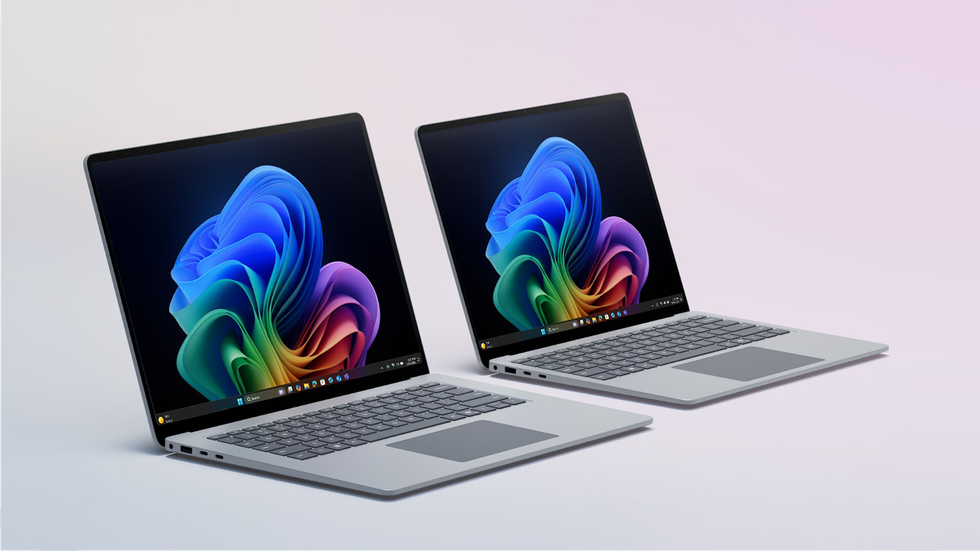Elon Musk has criticised a controversial new AI feature coming to Windows 11 devices this summer. Known as Recall, it takes screenshots of everything on-screen so you can scroll back in time and resume work on anything from within the last month. The functionality will be exclusive to a range of new Copilot+ PCs.
Artificial Intelligence, powered by Microsoft’s $10 billion partnership with OpenAI to licence its latest ‘flirty’ ChatGPT model, will analyse text and pictures in the screenshots — so you can search for phrases, people, animals, and landmarks to find what you’re looking for, without knowing the name of a document or webpage.
“We set out to solve one of the most frustrating problems we encounter daily – finding something we know we have seen before on our PC. Today, we must remember what file folder it was stored in, what website it was on, or scroll through hundreds of emails trying to find it,” wrote Yusuf Mehdi, Chief Marketing Officer at Microsoft, in a company blog “Now with Recall, you can access virtually what you have seen or done on your PC in a way that feels like having photographic memory.”
This is a Black Mirror episode.
Definitely turning this “feature” off. https://t.co/bx1KLqLf67
— Elon Musk (@elonmusk) May 20, 2024
But Elon Musk has compared the AI functionality to Black Mirror, a show that depicts near-future dystopias with a strong emphasis on technology. The Twilight Zone–inspired series, created by Charlie Brooker for Channel 4 before it was sold to Netflix, is named after the reflective nature of a computer screen that’s switched off.
“This is a Black Mirror episode. Definitely turning this ‘feature’ off,” the Tesla and SpaceX executive posted on his social media platform X, formerly known as Twitter. The 52-year-old multi-billionaire — who regularly tops the list as the richest person on the planet, depending on the strength of Tesla’s share price — shared a clip with Microsoft CEO Satya Nadella talking about the functionality of Recall in Windows 11.
Users on X were quick to respond to the post from Elon Musk.
Recall is the headline feature of this slate of Copilot+ PCs, which lets you scroll back through everything that has happened on your Windows 11 machine and jump back in time with a click. Everything is searchable as AI has trawled through the images and text on-device
MICROSOFT PRESS OFFICE
“Uhhhh sounds like surveillance repackaged as a feature,” one person shared in relation to the Windows 11 tweet, while another joked: “Did the CIA come up with this?”
“So, a built-in screen recorder. Because that’s not a security risk. You gotta give them credit, though; they took malware and made it into a ‘feature’,” one sceptical user on X shared in response to the post.
Recall isn’t enabled by default, so there’s no need to switch-off the feature as recommended by Elon Musk. When you set-up your Windows 11 machine, you’ll be asked whether you want to take advantage of Recall, but it won’t be taking screenshots in the background out-of-the-box.
That said, it’s worth noting that Elon Musk, who also owns and operates the tunnelling venture The Boring Company, is far from the only one concerned about the implications of the incoming Recall feature.
The Information Commissioner’s Office (ICO) confirmed to the BBC that it was “making inquiries with Microsoft to understand the safeguards in place to protect user privacy”. The data protection regulator added that private companies must “rigorously assess and mitigate risks to peoples’ rights and freedoms” before bringing new products to market.
In a bid to allay fears, Microsoft has reassured PC owners that Recall will never take screenshots whenever you’re using a private browsing mode, like Incognito Mode in Google Chrome. Windows 11 users can also add separate exceptions, including specific applications, where the feature won’t apply.
Privacy campaigners have also reacted very strongly to the announcement of Recall.
“This could be a privacy nightmare,” said Dr Kris Shrishak, an adviser on AI and privacy, told the BBC. “The mere fact that screenshots will be taken during use of the device could have a chilling effect on people.”
Jen Caltrider, who serves as Program Director for the *Privacy Not Included team at Mozilla, has warned that Recall would allow anyone with access to your laptop or desktop PC to a treasure-trove of personal information since it contains a categorised list of recent activity.
Caltrider cautioned: “[This includes] law enforcement court orders, or even from Microsoft if they change their mind about keeping all this content local and not using it for targeted advertising or training their AIs down the line.”
Microsoft says Recall will not censor or wipe information from the screenshots that it takes, even when passwords or bank account details are visible on-screen.
In a blog post about the new functionality, which will arrive with the new Surface Laptop next month, the US company wrote: “Recall leverages your personal semantic index, built and stored entirely on your device.
“Your snapshots are yours; they stay locally on your PC. You can delete individual snapshots, adjust and delete ranges of time in Settings, or pause at any point right from the icon in the System Tray on your Taskbar. You can also filter apps and websites from ever being saved. You are always in control with privacy you can trust.”
 Recall and a number of other AI features will be exclusive to Windows 11 running on so-called Copilot+ PCs, including the newly-announced Surface Laptop 7th Edition, pictured above MICROSOFT PRESS OFFICE
Recall and a number of other AI features will be exclusive to Windows 11 running on so-called Copilot+ PCs, including the newly-announced Surface Laptop 7th Edition, pictured above MICROSOFT PRESS OFFICE
But Jake Moore, global cybersecurity adviser at software security firm ESET, said the creation and storage of more private data through the feature could be an enticing prospect for cyber criminals.
“Enabling a feature which has the ability to capture screen data not only offers even more data to the company behind the software but also opens up another avenue for criminals to attack,” he said.
LATEST DEVELOPMENTS
“Whilst this feature is not on by default, users should be mindful of allowing any content to be analysed by AI algorithms for a better experience.
“Although it may produce better results, there is a balance that must be kept regarding functionality versus privacy and so users must remain aware of the potential risks should any sensitive data ever become compromised. Creating and storing more private data seems unnecessary when cyber criminals continually look for any given vulnerability to exploit.”

Laura Adams is a tech enthusiast residing in the UK. Her articles cover the latest technological innovations, from AI to consumer gadgets, providing readers with a glimpse into the future of technology.







